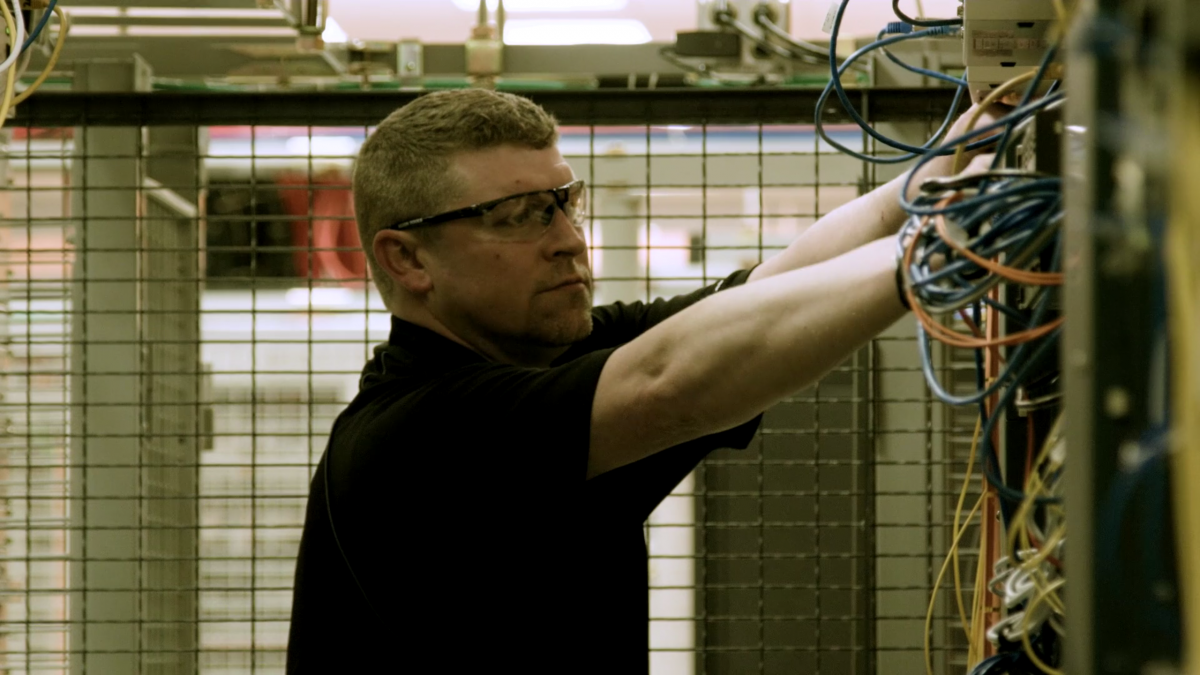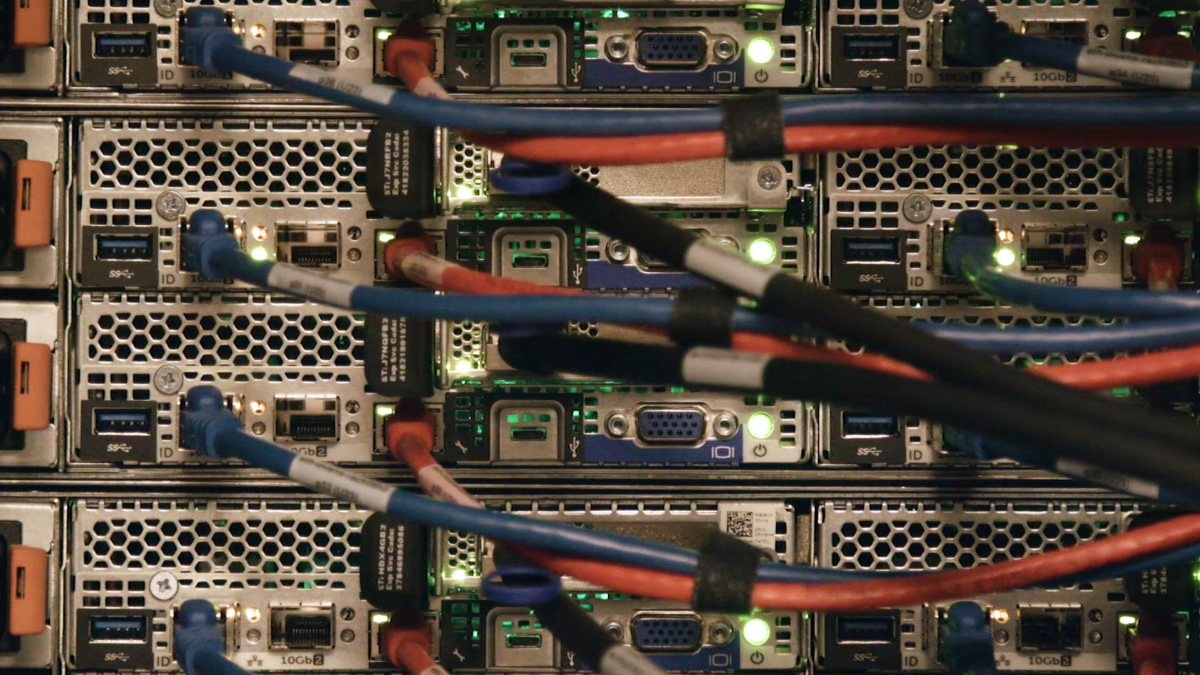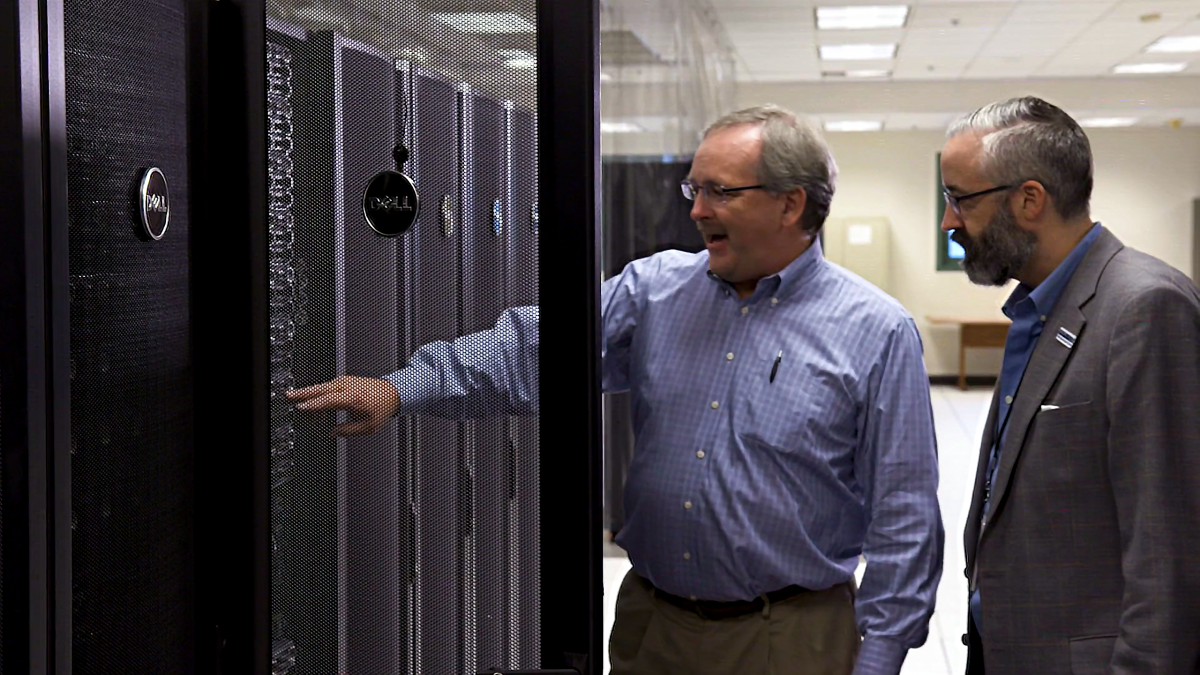If you hadn’t noticed, there has been a slew of articles recently recognizing Columbus, central Ohio, and the state in general as an emerging technology ecosystem. What’s behind this outpouring of tech respect, you may wonder? Well, it’s a combination of some attributes that have been around for quite some time (very few hurricanes and earthquakes, geographic centrality, low cost of living, etc.) and a handful that are more recently attributed to the region.

One of the relatively long-term factors has been the impact of the Ohio Supercomputer Center (OSC) and OARnet. Upon its creation in 1987, OSC was charged with boosting the computational ability of both academic and industrial researchers, and Battelle Memorial Institute was the center’s first industrial customer in 1988. Today, 40-plus companies leverage the computational muscle of OSC to advance engineering projects in such sectors as automotive, manufacturing, data analytics and energy.
Also established in 1987, OARnet has grown from a few point-to-point lines to a statewide, fiber-optic backbone of more than 2,400 miles. Early in its existence, OARnet staff developed local dial-up networks for users around the state and, in the early 2000s, worked with partner organizations to bring satellite-based broadband to isolated communities in the Appalachian hills of southeast Ohio. Today, OARnet pushes data at 100 Gigabits per second for clients in K-12 schools, colleges and universities, public broadcasting stations, health care facilities, and state and local government.
Tim Feran, a writer for the Columbus Dispatch, pointed out that “Even further back, Columbus was the center of the tech world when CompuServe was founded in 1969.” While not the market leader that it was then, CompuServe still exists as part of Verizon's newly formed Oath Inc. subsidiary.
Here are some examples of what others have recently said about Ohio’s recent recognition for technology excellence:
“Columbus is one of four cities that ‘punch above their weight’ in the size and impact of its internet sector,” according to a study recently released by the Internet Association and National League of Cities. Feran reported in the Columbus Dispatch that the report identified cities that are leveraging technology in all facets of decision-making, service delivery, and business. The two groups found that, “while the average city has 600 internet businesses and 9,000 internet-sector jobs, Columbus has 1,500 internet businesses and 25,400 internet-sector jobs.”

Courtney Reagan and Sabrina Korber note in their CNBC story, “This is why Ohio is becoming the e-commerce capital,” that commerce fulfillment operations are increasingly drawn here by the state’s central location, the nexus of transportation routes that meet in the state, and a skilled labor force available throughout the once-powerful manufacturing state. Those factors, coupled with somewhat recent changes to Ohio’s tax structure and new university supply chain and logistics certificate and degree programs, have convinced “many retailers to locate e-commerce fulfillment operations in the heartland state, including Amazon, J.C. Penney, Home Depot, Victoria's Secret, Fanatics.com, Zulily.com and many others.”
Carrie Ghose, a staff reporter with Columbus Business First observed, “National media were quick to label Columbus a ‘surprise’ pick on the longish short list of cities being considered by Amazon for its second headquarters. The city's bid was among 20 the Seattle tech giant narrowed from 238 bids to attract some $5 billion in investment and 50,000 jobs.” But, she went on to point out that Amazon Web Services has built a network of data and e-commerce centers throughout Central Ohio in recent years, with plans to expand to even more. Other large data centers have been built nearby by Cologix and IBM, and Facebook is building a data farm in the suburbs.
Add to that the fact that the futuristic Hyperloop One transportation tube project is exploring the Chicago-Columbus-Pittsburgh route as one of 10 worldwide where the first three could be built. Ghose also noted that Battelle Memorial Institute, The Ohio State University and more than a dozen other universities are within an hour’s drive of Columbus.

Columbus recently won a $40 million grant from the Department of Transportation to “develop autonomous transportation systems and tackle issues of climate change and urban inequality,” according to Patrick Sission, writing for Curbed.com in the article, “For Columbus, the Smart City grant is just the first step to becoming a tech leader.” Sission goes on to say, “… there’s a large entrepreneur class here, and a number of companies and institutions focused on engineering, from Ohio State University to the Battelle Institute, a nonprofit devoted to applied science and the world’s largest private research institute. When paired with the $40 million bet on new transportation technology, these advantages give Columbus a real chance to help shape a key 21st century technology still under development.”
On the venture capital front, Scott Suttell, managing editor of VenturBeat.com, posted a Q&A interview with Chris Olsen, co-founder (with Mark Kvamme) of Columbus-based Drive Capital titled “Midwest continues its drive to bolster tech startups and attract investors.” “When we first got here, there were a lot more companies that I would define as ‘technology-enabled services businesses’ — it was marketplace businesses that were powered by technology. Today there are a much, much larger number of what I would consider ‘true technology companies.’” Olsen described the Midwest as “the frontier of innovation.”
In a guest post in Forbes.com, “Businesses Move To The Midwest, First Stop: Columbus,” Rev1 CEO Tom Walker states, “As venture capital continues to grow on a national scale, investors are looking to the Midwest for the next round of billion-dollar companies.” He goes on to cite Columbus examples of start-up successes in areas such as healthcare, ecommerce, and predictive analytics. His organization’s Ohio TechAngel Funds, with more than 300 backers, has invested “$33 million into more than 55 Ohio-based companies, specifically high-potential IT, advanced materials, and life sciences startups.”
Another article by Ghose, “Accenture names Columbus a digital 'innovation hub' as it adds 200 jobs,” explains that the global IT consulting firm recently named Columbus one of 14 U.S. innovation hubs. The company has hired 100 software engineers and specialists in areas such as artificial intelligence over the past year. "We are an innovation-led company; Columbus has innovation in its DNA,” Accenture North America CEO Julie Sweet said in a quote in the article.


